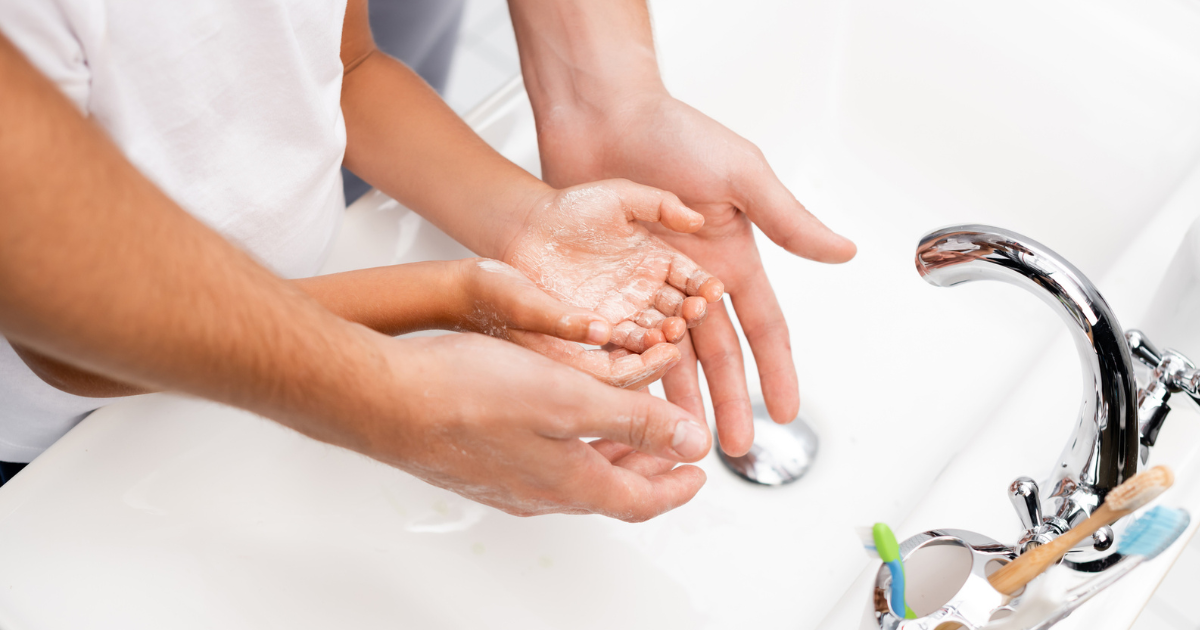What Makes Hard Water Hard?

Hard water is a common issue in many households, affecting the quality of water and the efficiency of appliances, but what makes hard water hard in the first place?
Hard water gets its name from the high mineral content it carries, primarily high concentrations of calcium and magnesium. These hardness minerals dissolve into the water as it moves through rocks and soil, creating hard groundwater. The hardness level typically is measured in grains per gallon (gpg) or parts per million (ppm).
Why You Don’t Want Hard Water in Your Home
Given the choice, most homeowners prefer to not have hard water in their home. It’s not generally considered a health risk, but it’s still undesirable for a number of reasons. Here are some of the most common effects of hard water:
- Appliance and Fixture Damage
Minerals in hard water — especially high levels of calcium — can accumulate over time, causing scale buildup in appliances like hot water heaters, dishwashers, and washing machines. This reduces their efficiency and lifespan, leading to increased maintenance costs and the need for premature replacements. - Decreased Cleaning Efficiency
Hard water reacts with soap and detergent, forming a scum that makes it harder to clean clothes, dishes, and even yourself. This can result in using more cleaning agents than necessary, impacting both your budget and the environment. - Dry Skin and Hair
The mineral content in hard water can leave a residue on your skin and hair, making them feel dry and dull. This can lead to skin irritation and the need for additional moisturizers and hair care products. Studies have shown that washing with hard water also may contribute to the development of eczema. - Scale Deposits on Fixtures
Hard water leaves behind mineral deposits (scale) on faucets, showerheads, and other fixtures. This not only looks unsightly but can also lead to corrosion and impair the functionality of these items. - Reduced Water Pressure
The accumulation of scale in pipes can restrict water flow, leading to decreased water pressure in your plumbing system.
While the World Health Organization (WHO) has stated that “there does not appear to be any convincing evidence that water hardness causes adverse health effects in humans,” it also has specified that “hardness levels above 500 mg/litre are generally considered to be aesthetically unacceptable.”
How to Tell If You Have Hard Water
There are several things that can indicate the presence of hard water in your home. Here are some common signs:
- Scale Buildup: Look for white, chalky deposits on faucets, showerheads, and appliances. These are signs of mineral buildup from hard water.
- Soap Scum: Difficulty lathering soap and the presence of soap scum in sinks and bathtubs can indicate the interference of hard water with cleaning agents.
- Dry, Itchy Skin and Dull Hair: If you notice that your skin feels dry and itchy after bathing or that your hair lacks luster, hard water could be the culprit.
- Spots on Glassware and Dishes: Hard water can leave spots and streaks on glassware and dishes, even after you’ve washed them.
- Reduced Appliance Efficiency: Keep an eye on the efficiency of your appliances. If they seem to be running less efficiently or require frequent maintenance, hard water may be a contributing factor.
Treatment Options for Hard Water
Fortunately, there are effective solutions to combat the challenges posed by hard water. Here are some popular treatment options:
Water Softeners
How They Work: A water softening system uses ion exchange to remove calcium and magnesium ions from the water, replacing them with potassium or sodium ions. These systems are installed where the water supply enters your home so that all the water used throughout the home is soft water.
Benefits: Softened water preserves the lifespan and efficiency of appliances, reduces scale buildup, and leaves dishes and clothes cleaner. Soft water also leaves skin and hair feeling softer and smoother.
Considerations: Regular maintenance is required, including adding salt to the system and occasional cleaning of the resin tank.
Reverse Osmosis (RO) Systems
How They Work: RO systems use a semi-permeable membrane to remove dissolved solids, minerals, and impurities, providing exceptionally pure water.
Benefits: RO systems are effective at reducing hardness as well as many other contaminants, providing high-quality, clean drinking water. And cleaner water offers numerous health benefits to those consuming it.
Considerations: RO systems are typically installed for point-of-use treatment at the kitchen sink and may not be practical for whole-house solutions.
Choosing the Right Treatment Option for Hard Water in Your Home
Selecting the most suitable treatment option depends on factors such as the hardness of water in your home, the desired level of water softness, budget considerations, and environmental preferences.
For example, the recommended solution for a home with very hard water may be different than if you have just moderately hard water.
Consulting with a water treatment professional can help you make an informed decision tailored to your specific needs.
Contact Us for a Free In-Home Water Test
Hard water doesn’t have to compromise the efficiency of your appliances and the well-being of your family. To determine the water hardness level in your home and its impact on water quality, we invite you to schedule a free in-home water test with us.
Our experts will analyze your tap water to measure hardness levels and identify any other potential contaminants. With these test results, you’ll be able to make informed decisions about the best water treatment solutions for your household.
Contact us today to schedule your free in-home water test and take the first step toward enjoying the benefits of high-quality soft water in your home.
